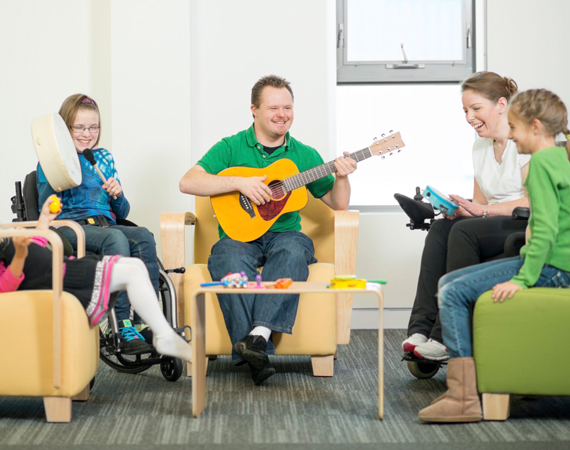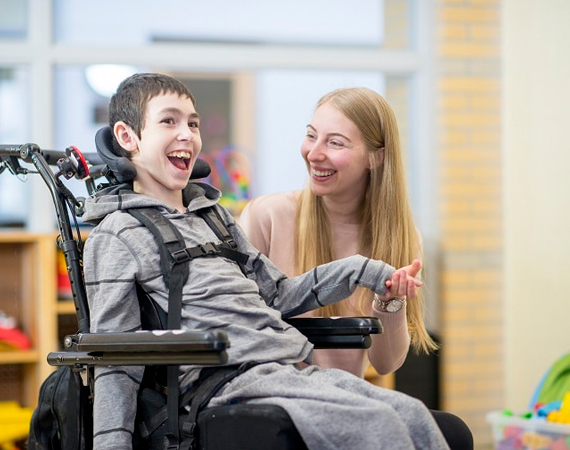Autism in Australia: Numbers, Challenges, and Support
Autism in Australia: Numbers, Challenges, and Support
Autism Spectrum Disorder (ASD) is a developmental, lifelong condition that affects how people perceive the world and interact with others. Whilst autism awareness & understanding has come a long way in Australia, there are still significant challenges faced by individuals with autism and their families. This blog will talk about how many people in Australia have autism, what problems they face, and what kinds of help are offered.
Understanding about autism spectrum disorder
A brain development condition called autism spectrum disorder changes how a person perceives and communicates with other people, which can make it hard to communicate and connect with others. The condition involves restricted and repetitive behaviour. The "spectrum" in autism spectrum disorder refers to its vast range of symptoms and severity. Autism spectrum disorder includes autism, Asperger's syndrome, childhood
disintegrative disorder, and an unidentified widespread developmental disability. Some people still say that Asperger's syndrome is a mild form of autism spectrum disorder. Autism spectrum condition starts in early childhood and affects social, academic, and occupational performance. Many children with autism exhibit signs in their first year. Occasionally, children grow normally in the first year but then regress between 18 and 24
months when they develop autism. Autism spectrum illness has no cure, although rigorous, early therapy can change many children's lives.
Statistics on autism in Australia
Autism is one of the most common developmental diseases in Australia, according to new research. The Australian Bureau of Statistics (ABS) says that about 1 in 70 people are on the autism range. This frequency has been going up, which means that people are getting better diagnoses and are more aware of it.
Persons with autism face challenges.
1.Problems with speaking and socialising
People with autism often have trouble interacting with others. It might be hard for them to read social cues, have talks, or make friends. Having these problems can make you feel alone and isolated.
2. Problems with education
There are problems for a lot of kids with autism in regular schools. Teaching techniques might need to be altered, IEPs drafted and they may require additional teacher/liaison personnel support. In schools, tools are often lacking for students that have autism to be successful.
3. Employment issues
It is very hard for adults with autism to get jobs. A lot of people have the skills and desire to
work, but they often face discrimination, managers who do not understand, and settings
that do not meet their needs.
4.Concerns about mental health
Mental health problems like worry, sadness, and stress are more likely to happen to people
with autism. It can be hard for them mentally to always try to fit in with social rules and deal
with the problems that come up in daily life.
People with autism can get help in Australia.
1.Services for early intervention
Supportive services for children with autism must start right away. The National Disability Insurance Scheme (NDIS) in Australia pays for early intervention programmes like behavioural therapy, speech therapy, and physical therapy. These programmes make life better for kids and help them learn important skills.
2.Educational Support
Australia Autism needs to be understood and supported in schools. Unit Schools And Specialised Educational Settings can also be found in the General and Autism Only sectors providing individually considered learning. The government also pays for things like teacher training so that teachers can effectively support children with autism.
3.Help with finding a job
In Australia, there are a number of groups that work to improve job possibilities for people with autism. There are programmes like JobAccess and the Autism Cooperative Research Centre (CRC) that can help people with autism find and keep a job. The main goals of these courses are to teach managers, make workplaces more welcoming, and give job coaching.
4.Community and social support
Support and community groups are very important for helping people with autism and their families. Autism Spectrum Australia (Aspect) and other groups like it offer social skills classes, fun events, and peer support networks. These projects give people chances to meet new people and get involved in their communities.
The Australian government implemented several legislations and programs to assist autistic individuals. The National Disability Insurance Scheme (NDIS) is a key element as it funds the services and supports needed by people with disabilities. It is also a mean to support us with autism and to make it easier for research into why we have autism.
Technology has grown into an important tool for helping people with autism. Communication apps and sensory tools are examples of assistive technologies that can help people with autism interact better and deal with their physical needs. There are also virtual support groups and therapy meetings on online sites, which makes getting help easier.
Making more people aware of autism and encouraging acceptance are important steps to take to make the lives of people with autism better. Awareness efforts, like World Autism Awareness Day, help teach more people about autism and how important it is to be open to everyone. People with autism need to feel understood and accepted in their schools, jobs, and neighbourhoods.
Hearing from people with autism and their families can help you understand the problems and successes they face every day. Personal stories show how different people with autism have had experiences and stress how important it is to understand and help each other.
When Ella, a 10-year-old girl from Sydney, was three years old, she was told she had autism. Early warning signs included speech delays and social issues that her parents noticed. Thanks to early intervention services paid for by the NDIS, Ella has come a long way. She now goes to a regular school with extra help and enjoys things outside of school like art and music.
Conclusion
There is a big overlap between drugs being used in autism and mental health, but ultimately autism — although referred to as one condition, it is highly diverse. Despite the progress we have made over the years, with learning how to understand autistic people and working towards providing them appropriate help there are still issues. We all must continue to work together until every person with autism has the proper resources and opportunities they
deserve to lead a productive life. The awareness should be raised in Australia and the amenities also need to be developed, eventually of course this would lead us towards acceptance i.e. making society open for everyone!







